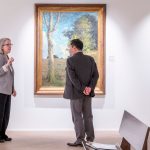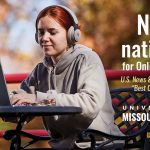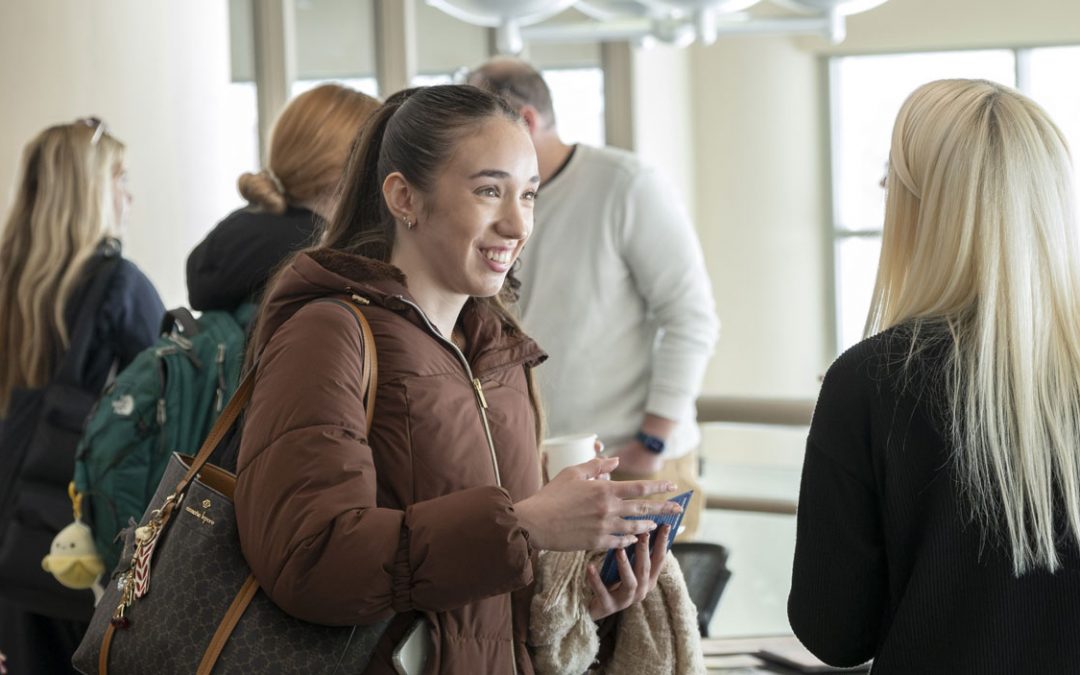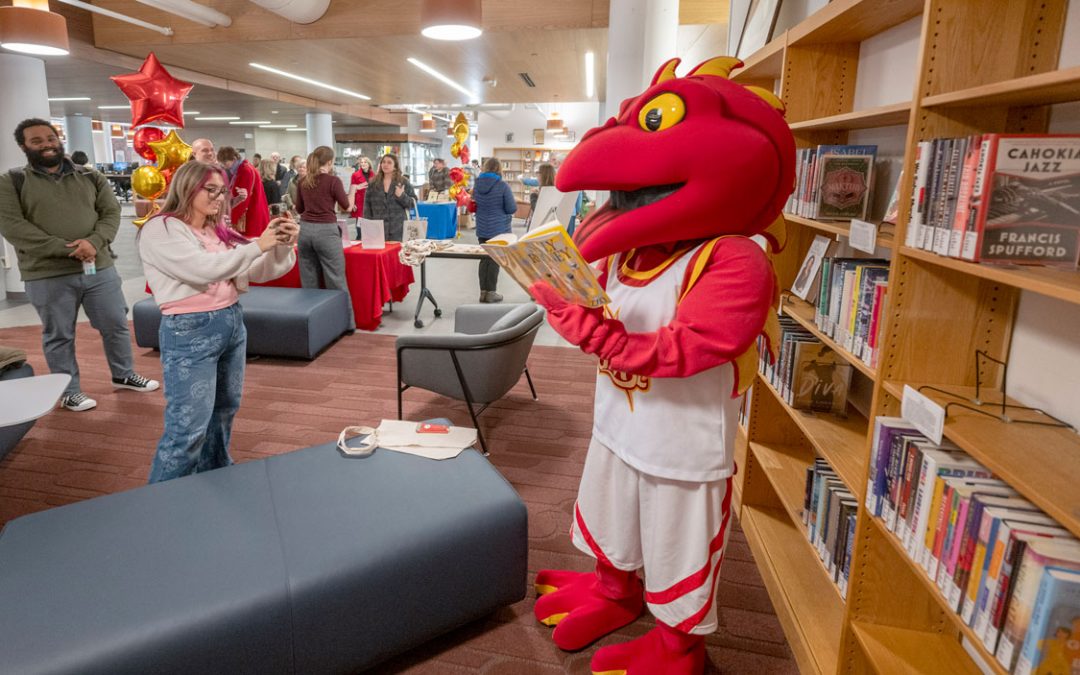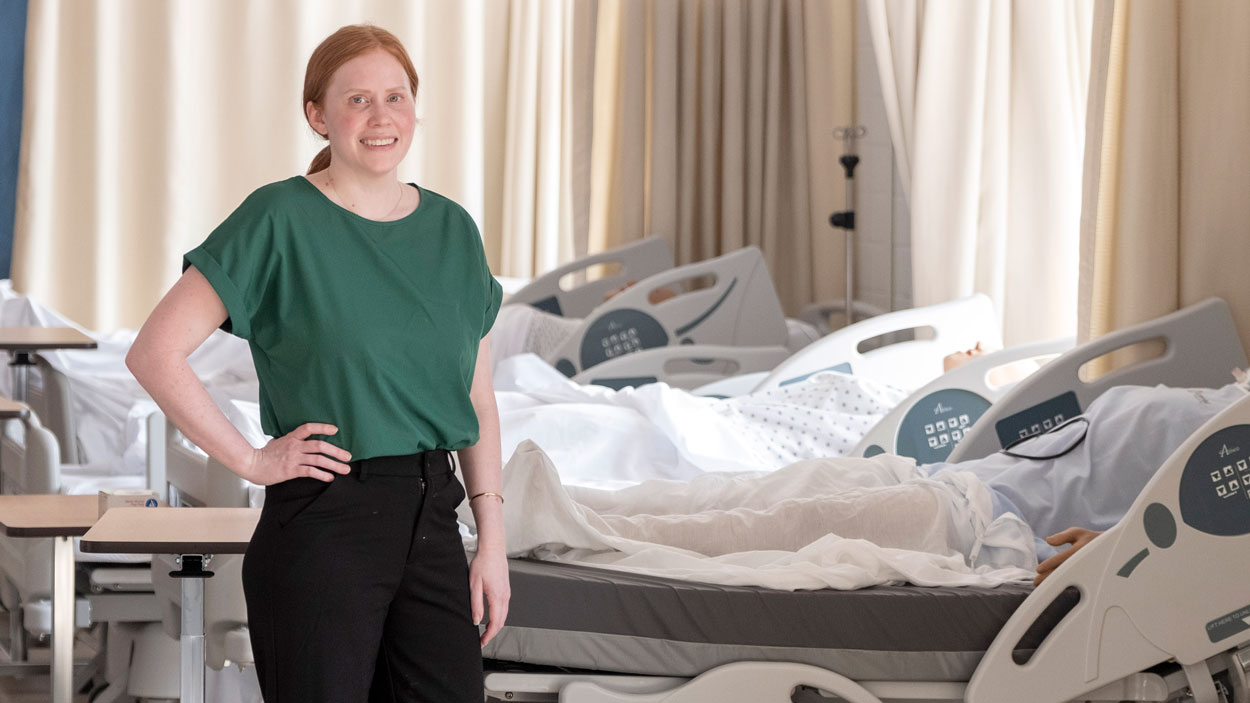
Victoria Cobb earned her DNP from the College of Nursing this month. Her project looked at ways to reduce social isolation and loneliness in older adults at St. Andrew’s Senior Solutions. (Photo by Derik Holtmann)
Having worked in nursing for over a decade, Victoria Cobb feels strongly that nurses and other health care providers should feel empowered to implement their ideas to help promote mental and emotional health.
And that’s exactly what completing the Doctor of Nursing Practice program at the University of Missouri–St. Louis College of Nursing did for Cobb.
Cobb, who earned her BSN from Southern Illinois University Edwardsville in 2012, has worked in inpatient and outpatient behavioral health for 12 years. She found her passion for behavioral health while working as a registered nurse in home health, where she quickly realized how much she enjoyed being able to talk to her patients one on one and work through issues together.
After working as a regional float nurse in different behavioral health units across SSM Health locations in St. Louis, Cobb started thinking about ways she could affect change on a bigger level. She knew she wanted to work as a nurse practitioner – ideally on the psychiatric mental health track – and soon landed on the DNP program at UMSL.
While Cobb initially started a different DNP project, she eventually chose to build on a previous project by 2023 DNP graduate Tanja Johnson that used weekly socialization visits to reduce social isolation and loneliness – both significant public health issues – in older adults at St. Andrew’s Senior Solutions. In keeping with her work in a behavioral health clinic, Cobb added her own spin to the project by incorporating mindfulness interventions that encouraged participants to pay attention to the present moment and observe their thoughts and feelings.
“Older adults, specifically, are more vulnerable to social isolation and loneliness,” Cobb said. “As they’ve gotten older, they have had decreased social networks, the loss of significant loved ones and unfortunately just part of the natural aging process – they might not be physically able to get out and see friends and family.”
Over the course of eight weeks, Cobb worked with students in the College of Nursing’s Community-Based Clinical Education program to implement weekly socialization visits and mindfulness interventions, such as meditation, deep breathing or a journal entry, with residents. Cobb used the Visit-A-Bit screening assessment instrument to measure the results and found that both social visits and mindfulness interventions can help increase social interaction and decrease the frequency of loneliness among older adults.
The project allowed Cobb to see a new perspective of nursing out in the community, and she felt that it also had a substantial impact on the undergraduate students who helped carry out the project in their last semester of nursing school.
“It was incredibly rewarding,” she said. “If you could see the undergraduate students from when they first started to where they ended, in terms of growing in confidence and developing communication skills – it was definitely one of the highlights of the project. Since there were different layers – I was in grad school and the students were doing undergraduate nursing – it reminded me of the importance of intergenerational learning, because they taught me things as well. I think one of the biggest things I learned was to really take the time with each resident and see what we can do. [The undergraduate nursing students] really took the time to say what is it that we can do each week to make the visit better or to make the mindfulness intervention more specific to them so that they could get the most out of the project.”
In addition to the weekly social visits, which helped with social isolation and loneliness, Cobb hopes that the mindfulness interventions she introduced can continue to help residents with stress and loneliness long after the project has ended. Just a few weeks into the project, for instance, one resident told her that she was continuing to do five-minute meditations in her own time.
“I’m hoping it’s something that they will look back on and be able to use it in their everyday life,” Cobb said.
Cobb, who officially graduates with her DNP this month, hopes to become a board-certified psychiatric mental health nurse practitioner in the next few months. She wants to continue working in outpatient behavioral health and feels that her experience in the DNP program empowered her to take the next step in her career and implement her own ideas to make real change.
“I hope that this project is a reminder that nurses can lead for innovation,” Cobb said. “This program helped make me feel more comfortable in leadership and it definitely helped with my critical thinking skills. It showed me that you can have a lot of innovative ideas, not just at the bedside but in broader terminology, like in the community with care systems in general. It makes me think about the broader picture of things that we can do.”









